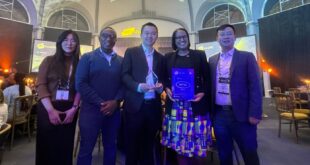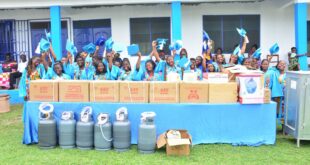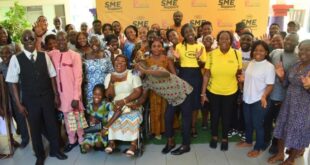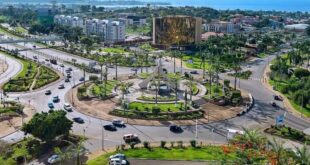Afram Plains, Ghana – Farmers and Agricultural Extension Officers in Afram Plains have welcomed marketing opportunities under the Ghana Warehouse Receipt System (WRS) at a capacity building workshop organized by the International Finance Corporation (IFC) at Afram Plains.
They believe that the WRS project will help address the challenge of access to market as well as access to credit and storage facilities.
“I believe this project is going to solve our problems because it is going to give us easy access to market and also storage facilities”, Aseiduwaa Mary, a farmer in Afram Plains stated in an interview.
According to the farmers, the WRS will also eliminate the challenges associated with middlemen and will offer them with a better pricing regime. “Middlemen determining prices for us will be a thing of the past when the WRS takes off here” said Aseiduwaa.
“I am happy because the project will help us store our maize and also provide us with the opportunity to easily access credit and this will make our farming life a lot easier”, stated Janet Amakye.
Agricultural Extension Officers, at another capacity building training session also in Afram Plains, were of the view that the Ghana WRS project will give farmers easy access to market and also give them financial advantage. “This project will be very beneficial to the farmer because it will give them easy access to market and finance. So I will advice the farmers in my district to participate in it”, said Mary Mayeden an Agric Extension Officer at Afram Plains.
The Ghana Warehouse Receipt System Project is being implemented in nine regions of the country with financial support from the Swiss Secretariat for Economic Affairs (SECO). The IFC WRS project is a technical assistance and advisory services project aimed at setting up a well-functioning regulated Warehouse Receipt System that is expected to facilitate an increased access to credit to farmers and the supply chain, linkage to structured markets and reduction in post-harvest storage loses. This intervention focuses on supporting a well-functioning WRS as a necessary pre-condition for a successful implementation of the Ghana Commodity Exchange (GCX). The project addresses WRS on a policy and regulatory level, system level, including technical advisory, training, capacity building and awareness raising for various stakeholders in the public and private sector.
By SavannahNewsOnline.Com/Kofi Ahovi
 Savannah News Online Reporting Only What Matters Most
Savannah News Online Reporting Only What Matters Most



